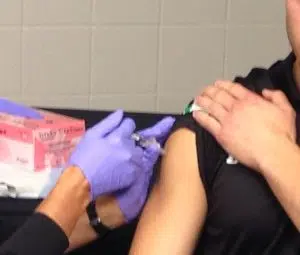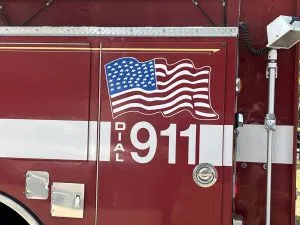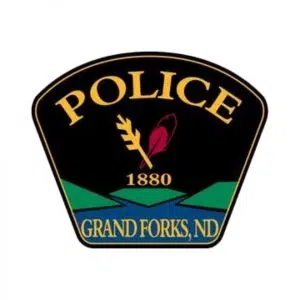
(Michael Achterling/North Dakota Monitor) – Cases of whooping cough have more than tripled in North Dakota compared to last year, including four infants who needed to be hospitalized, the Department of Health and Human Services said Wednesday.
The state agency said 73 cases of pertussis, also known as whooping cough, have been reported across 11 counties so far this year.
In 2023, 17 cases were reported in two counties, which included 16 cases in Cass County, said Danni Pinnick, immunization coordinator for HHS.
Whooping cough is a respiratory disease, Pinnick said, and one that can be treated with antibiotics and prevented through vaccination.
The illness is “very contagious” and can be passed onto others for multiple weeks, according to HHS. The disease is most severe in infants, but symptoms may be milder in people who have been immunized.
HHS recommends DTaP (diphtheria, tetanus and acellular pertussis) vaccinations starting at 2 months old for infants; a DTaP vaccination for adolescents; a Tdap (tetanus, diphtheria and pertussis) booster vaccine for adults every 10 years; and a Tdap vaccine for pregnant women.
“One of the most important groups to vaccinate are our pregnant moms who are about to give birth so that baby can have some antibodies,” Pinnick said.
Pinnick said fathers, grandparents and other family or friends who may care for the child should also be vaccinated against whooping cough to protect the newborn as well.
North Dakota infants between 19 to 35 months old have a 73% vaccination rate against pertussis in the third quarter of 2024, according to the North Dakota HHS vaccine dashboard.
That rate increases to 86% of teenagers, which Pinnick said could be due to a middle school vaccination requirement for the disease. The rate decreases to 75% for adults over 18.
Pinnick said the vaccination rate for infants could be misleadingly low because young children require a five-dose vaccine schedule and, if they hadn’t finished all five doses by the time of the survey, they would be considered unvaccinated.
The department issued a health advisory for the illness to health providers in the state and said early symptoms of whooping cough may be a runny or stuffy nose, fever, mild cough and breathing difficulties.
Advanced symptoms can include coughing fits that cause a high pitched “whoop” when inhaling, vomiting, tiredness or trouble sleeping.
Children are more susceptible to whooping cough during the early fall as they reenter schools and child care centers, Pinnick said.
High-risk people should visit a health care provider if they have come in close contact with someone with whooping cough.
To prevent the spread of the illness, HHS recommends those with pertussis be excluded from work or school until they’ve completed their fifth day of antibiotic treatment, or 21 days after the onset of a cough.
For more information on whooping cough, visit the North Dakota Health and Human Services Department website.









